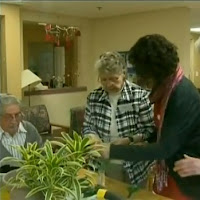
Why Did Europe Finally Choose Lecanemab for Alzheimer’s?
Europe originally said Lecanemab (Brand-name Leqembi) was too risky to approve. Now they are recommending marketing it. Why the change of heart?

Europe originally said Lecanemab (Brand-name Leqembi) was too risky to approve. Now they are recommending marketing it. Why the change of heart?

The European Medicines Agency (EMA) recommended approving Leqembi® (generic lecanemab) for Alzheimer’s. Originally skeptics, learn how the “Clarity AD” trial helped change their mind.

Leqembi is an FDA-Approved Alzheimer’s treatment. Hospital infusions take an hour each. 2025 is looking to see a new 15-second autoinjector version. For some, it should even work at home.

Why are some of the new anti-Alzheimer’s antibodies better than others? With the FDA’s approval of Lecanemab and Donanemab, it’s worth staying on top of this topic’s latest research.

The 2 newest Alzheimer’s drugs, Leqembi (lecanemab) and Kisunla (donanemab) show promise, but many questions remain. Here are the three next ones.

Right now, there are two FDA approved drugs to treat Alzheimer’s itself. Find out why Remternetug may soon get approval as a third, even better treatment.

Kisunla, the newest Alzheimer’s drug, is rapidly gaining acceptance around the world. Learn what it does and how to get it.

Nature provides some of the best therapies for Alzheimer’s. Daffodils specifically from Wales are a big source of Galanthamine for Alzheimer’s. Rosemary competes head-on with the Alzheimer’s drug donepezil. Learn more about these natural sources.

How do the new drugs Leqembi and Kisunla fight Alzheimer’s? Surprisingly, increases in amyloid-beta protein levels can explain the slowing of Alzheimer’s at least as well as the reduction in amyloid plaques.

Dr. Jason Karlawish from Penn Memory Center discusses the careful process of determining if Lecanemab is right for a patient with Alzheimer’s.

Researchers in Florida find that robotic pet cats improve mood, behavior and cognition in older adults with mild to moderate dementia. Find out more.

The protein BDNF builds synapses in the human brain, nurturing brain cells and fighting off dementia. While there is no artificial way of boosting it, social and cognitive activity can.

Memory failing? New research shows you may need help, but not for dementia. Memory slips, stress and fatigue are growing in people with healthy memory.

When a hurricane hits Florida — or anywhere that has a very large population of people with dementia, there are special preparations that should be made by those living with dementia. Check these dementia-in-a-storm readiness lists.

In gardening, people with Alzheimer’s grow fresh plants along with better thinking. It’s a pleasant way to make things easier.

The co-founder of a caregivers’ organization introduces technology he has found helpful in caring for his grandmother with dementia.

People with dementia are enjoying yoga and dance classes at the Alzheimer’s Association. See why caregivers find the classes “EXTREMELY helpful.”
No spam, only news and updates.


